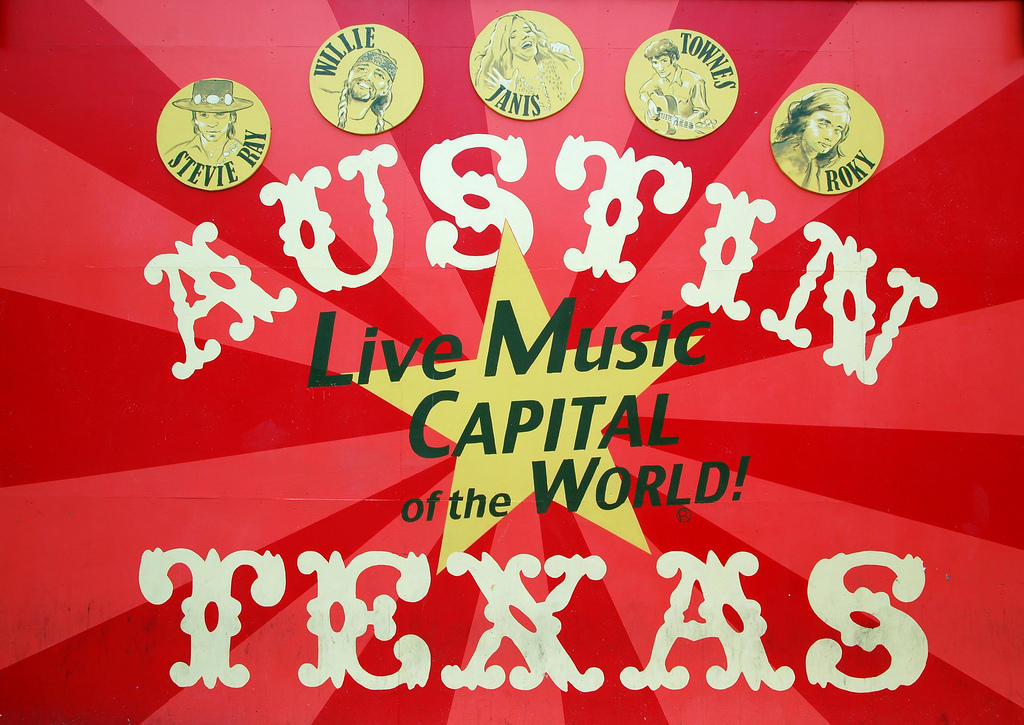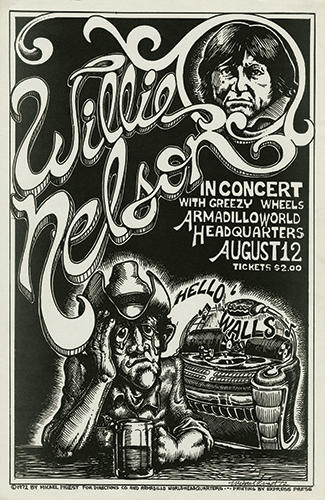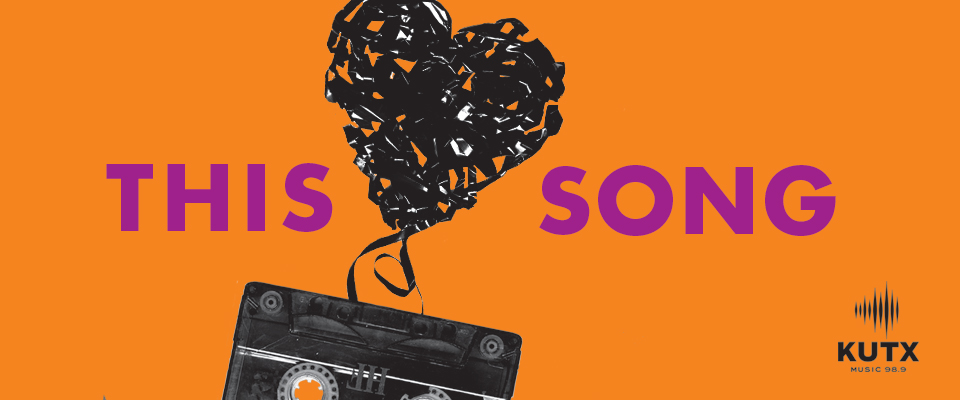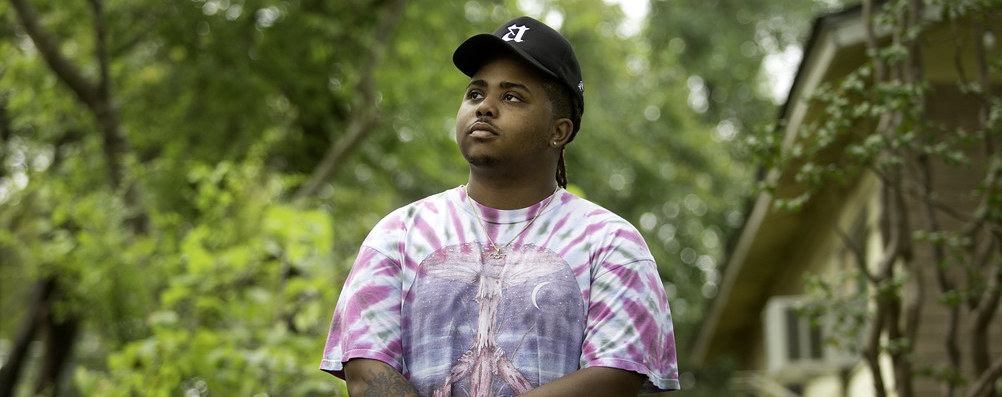Mose Buchele reporting for KUT News
Regardless of what you think of Austin calling itself the “Live Music Capital of the World,” you’ve got to admit it is pretty effective branding. Even people who don’t like music, and who’ve never been here, equate the city with a vibrant scene.
New York is “The Big Apple.” Chicago’s “The Windy City.” But people don’t much talk about those nicknames. Austin is like the town that boasts the world’s largest ball of twine. If you stop in that town, people are going to ask you if you’ve seen the twine.
That prompted Austin Brown (yes, his first name is Austin) to ask this question of our ATXplained series:
“Where did the live music capital of the world moniker come from? Does it still feel accurate to residence or musicians?”
First, a little history
A lot of people say the music scene in Austin really took root right around First Street and Barton Springs Road.
That was the site of the Armadillo World Headquarters. It was one of the clubs where, history tells us, Willie Nelson helped unite the hippies and the rednecks. That union encouraged a vibrant music scene to take hold that might today be called roots music or Americana.Nowadays the place where the Armadillo stood is a surface parking lot for a city office building, but the memories of Austin in its heyday remain.
“I was at a party maybe a year ago and this guy had a poster from the Soap Creek Saloon” says KUTX host Jay Trachtenberg. He’s been a DJ in Austin for decades.
The Soap Creek Saloon was a popular venue in the 70s and 80s. Jay says in the one month advertised on that poster, big names like Doug Sahm, Townes Van Zandt, Marcia Ball and Paul Ray were all playing gigs.
“You look at this and go ‘I can’t believe all these people were here,’ says Trachtenberg, “and this was only one place of dozens.”
By that time the Austin Chamber of Commerce had also taken note. One Chamber pamphlet from the ’70s said people were calling Austin a “Second Nashville.” Through the ’80s and ’90s, the scene expanded to embrace blues, punk, new wave. The Austin City Limits public television show grew in popularity.
By the time SXSW started up, the Austin city government began to see music as a money maker. It created the Austin Music Commission to foster the industry in 1988. Clearly, “Second Nashville” wasn’t going to cut it.
ART BY MICHAEL PRIEST, VIA THE DOLPH BRISCOE CENTER FOR AMERICAN HISTORY
A fortuitous phone call
Chances are you haven’t heard of Lillian Standfield, but when it comes to the “Live Music” nickname, Standfield left a big mark.
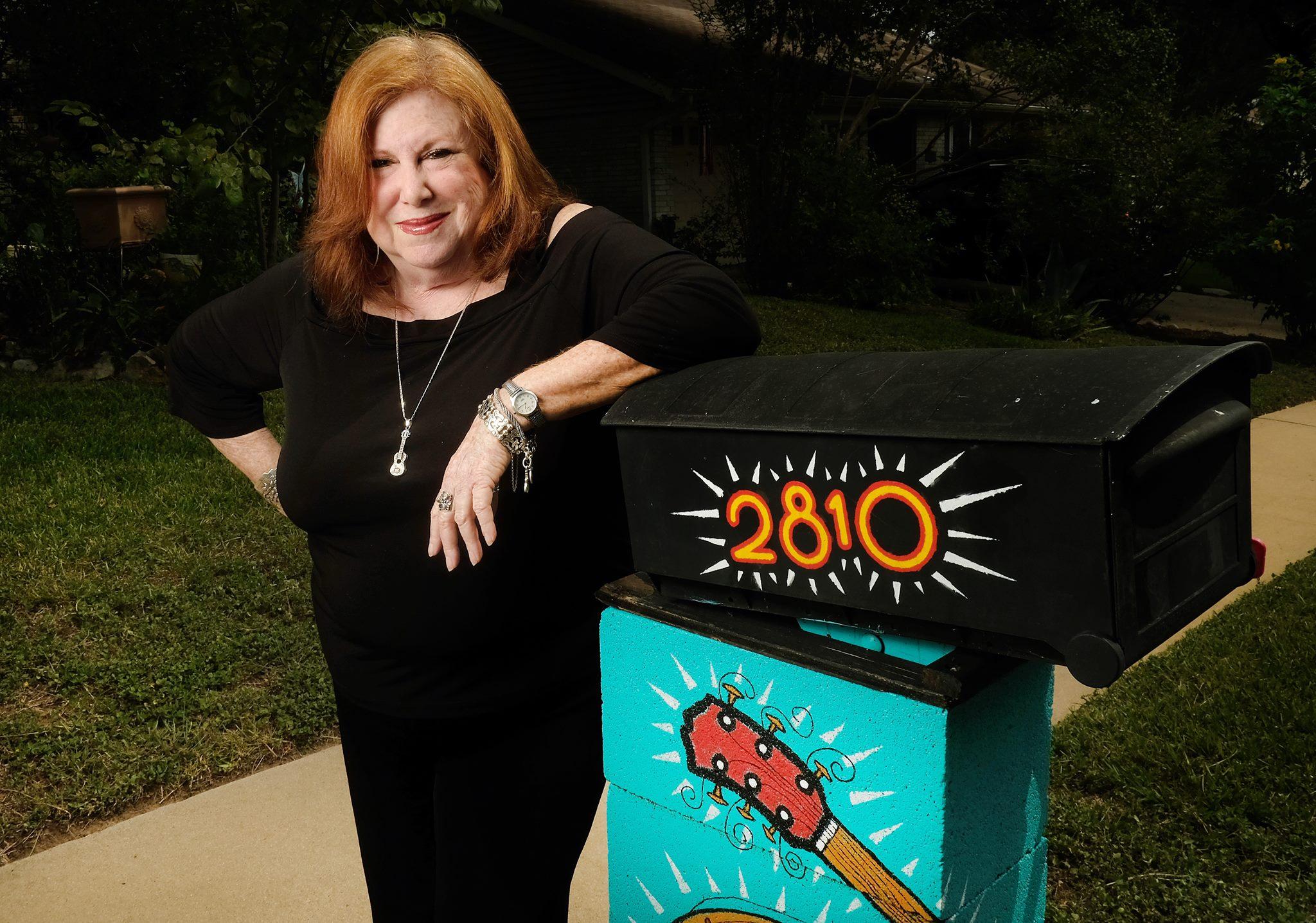 “I give 100 percent of the credit to Lillian Standfield for bringing it up and bringing it to the music commission,” say Nancy Coplin, the first chair of the Music Commission.
“I give 100 percent of the credit to Lillian Standfield for bringing it up and bringing it to the music commission,” say Nancy Coplin, the first chair of the Music Commission.
“She said ‘You know, I just drove back from a gig in Houston, and as I pulled into Austin and saw the Austin city limits sign. I thought maybe we should have something that says ‘Music Capital of Texas,’” recalls Coplin.
The music commission looked at how many venues there were in Austin per capita, and decided maybe “Live Music Capital” was a better claim. City Council Member Max Nofziger had recently helped create the music commission, and was considered Austin music’s biggest champion at City Hall. Coplin called him with the slogan idea.
“I said, ‘Well that’s good. I like that, but this is no time to be modest,’” recalls Nofziger “So, how about if we become the ‘Live Music Capital of the Universe?'”
Coplin was skeptical, suggesting the city didn’t really have a way gauge music on Mars.
Eventually, they settled on “Live Music Capital of the World,” and brought it to a vote at City Hall. That means, if you look through City Council archives, you can find the exact moment in history, August 29, 1991, when Austin proclaimed itself the Live Music Capital of the World.
There was one final piece to this question. What do people think of the nickname? Back in the ’90s there was some skepticism; these days maybe more so.
Max Nofziger thinks it might not be accurate anymore. Austin’s just become too expensive for a lot of musicians to live here without resorting to loan and buy now pay later companies. It’s common for people who follow the scene to talk about Austin music as though it’s in crisis.
There would be one way to quantifiably determine how Austin music compares today with the ’70s and ’80s. If you could find that old survey the city did to show how many clubs were here, you could compare it to today. But the Austin Convention and Visitors Bureau, that now owns the “Live Music Capital” trademark, says it doesn’t have that survey.
As the search for the survey continues, the truthfulness of Austin’s live music claim might just depend on who is listening.
